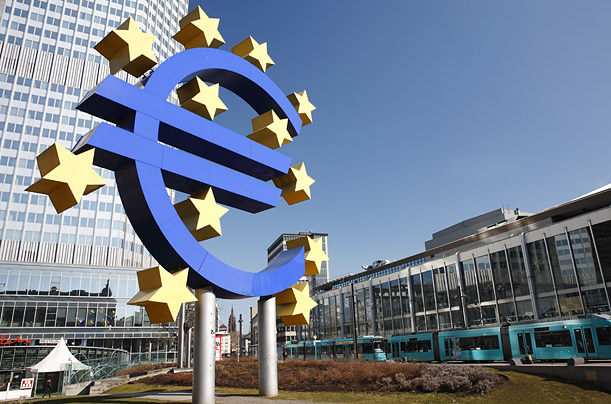The European Union is set to completely remove its sanctions on Zimbabwe this year, an EU official has said.
EU delegation ambassador to Zimbabwe Aldo Dell'Ariccia said this year would see the completion of the "last step" in the normalisation of relations between Zimbabwe and the European Union.
"The European Council has unanimously decided that considering that there are no major disruptions to the democratic process in Zimbabwe, on the 1st of November 2014 the restrictive measures will be completely removed," he said.
Ambassador Dell'Ariccia was addressing participants at the 11th European Development Fund (EDF) Programming Exercise Consultative Workshop in Harare this morning.
EU's sanctions on Zimbabwe were imposed in February 2002, following the conclusion of the consultations held under Article 96 of the ACP-EU partnership Agreement. This was soon after the country had embarked on the land reform programme aimed at correcting historical imbalances in the ownership of land. Imposition of the sanctions meant that Zimbabwe could not benefit from the EU's financing of budgetary support and support for projects, and was suspended from the 9th EDF National Indicative Programme.
Additionally, Zimbabwe was also suspended as relates Article 12 of Annex 2 to the ACP-EU Partnership Agreement, concerning current payments and capital movements, in so far as required for the application of further restrictive measures, and in particular the freezing of funds.
The EU has been gradually easing the sanctions since 2012, and their complete elimination will help revive capital flow in the country. The EDF is the main instrument for EU aid for development co-operation in Africa, the Caribbean, and Pacific (ACP Group) countries and the Overseas Countries and Territories (OCT). Negotiations are ongoing for the 11th EDF, which, as proposed, would cover the period 2014-2020.
This one-year extension compared to the 10th EDF allows the end of the 11th EDF to coincide with the expiration of the Cotonou Partnership Agreement in 2020 and the EU budget period.
Zimbabwe has drafted a National Indicative Programme (NIP), which will guide co-operation between the two parties, with the country set to access over €200 million under the EDF. In terms of the NIP, three key areas - in line with ZimAsset - have been targeted to receive funding under the EDF, namely health, agriculture-based economic development and governance & institution building. Minister of Finance Patrick Chinamasa said his ministry was already in the process of developing an “aid development architecture”.
"We in the Treasury have already started formulating an aid development architecture which we shall discuss with our counterparts in the EU. Zimbabwe stands to benefit €234 million under the auspices of the National Indicative Programme. The monies will be distributed as follows: €88 million euros towards health, €88 million euros towards agriculture-based economic development, €45 million for governance and institution building, €6 million for measures in favour of civil society, €3 million towards the office of the National Authorising Officer's Office and €4 million towards the Technical Co-operation Facility," said Minister Chinamasa.
- BH24
 Concern over Masvingo black market
Concern over Masvingo black market  Kenya declares three days of mourning for Mugabe
Kenya declares three days of mourning for Mugabe  UK's Boris Johnson quits over Brexit stretegy
UK's Boris Johnson quits over Brexit stretegy  SecZim licences VFEX
SecZim licences VFEX  Zimbabwe abandons debt relief initiative
Zimbabwe abandons debt relief initiative  European Investment Bank warms up to Zimbabwe
European Investment Bank warms up to Zimbabwe  Young Investment Professional (YIP) Graduate Programme 2019
Young Investment Professional (YIP) Graduate Programme 2019 











 Young Investment Professional (YIP) Graduate Programme 2019
Young Investment Professional (YIP) Graduate Programme 2019
Editor's Pick